'You are my hero, dear Jiří': Karita Mattila and others remember Jiří Bělohlávek | reviews, news & interviews
'You are my hero, dear Jiří': Karita Mattila and others remember Jiří Bělohlávek
'You are my hero, dear Jiří': Karita Mattila and others remember Jiří Bělohlávek
A younger conductor, a diva and four players salute the greatest of Czech musicians
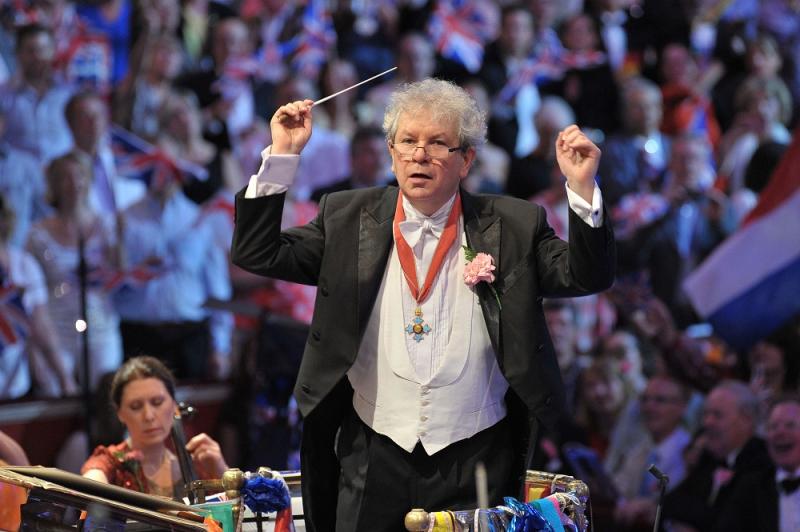
The first of Jiří Bělohlávek’s final three appearances in London, conducting his Czech Philharmonic in a concert performance of Janáček’s Jenůfa, came as a shock. The trademark grey curly hair had vanished.
What a lot we have to mourn, but also to celebrate. During his time at the BBC Symphony Orchestra, from 1995 to 2000 as Principal Guest Conductor and between 2016 and 2012 as Chief Conductor, two towering cycles stood as testament of his quietly remarkable work with the orchestra: the long-term Mahler series, an overall testing-ground for the new body of string sound he shaped, with performances of the Third, Fifth and Ninth as impressive as any I’ve heard; and the six Martinů symphonies he conducted in taxing programmes over a single season. Their execution, since documented on CD, set the seal on Martinů’s long-delayed recognition as one of the 20th century's greatest symphonists.
One personal memory, of seeing him to my surprise Promming in the Arena, can be illustrated here: photographer Chris Christodoulou, who caught him in so many moods at the Albert Hall and elsewhere, also noticed him, and has kindly allowed this image to be reproduced of Bělohlávek and Czech music expert Sharon Choa on the right alongside some of his more official shots.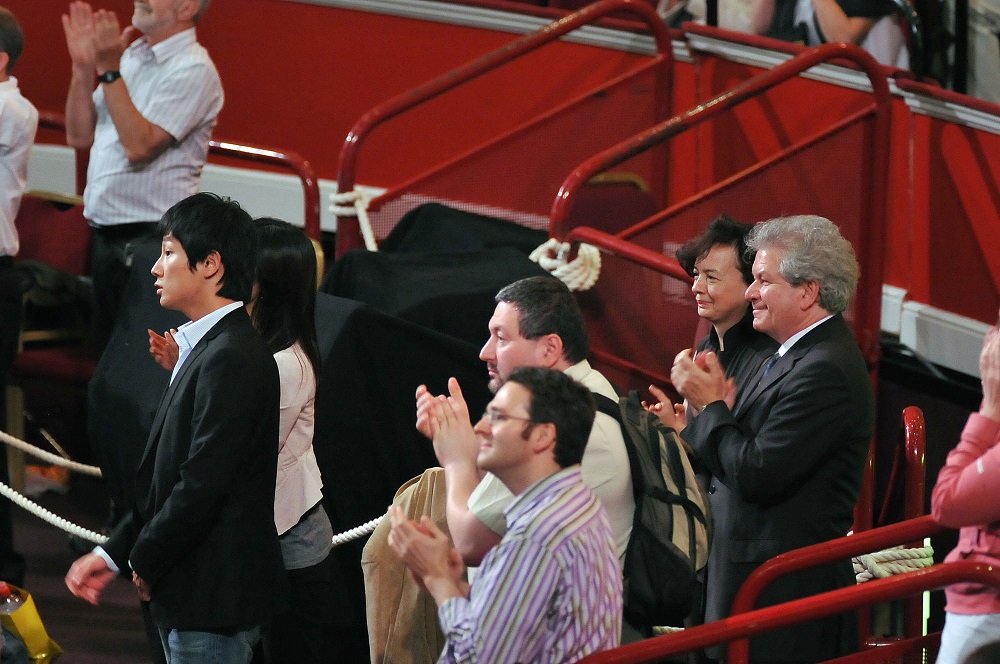 Here we present tributes from one of his outstanding pupils, Jakub Hrůša, now carving a reputation to equal the master’s; the soprano Karita Mattila who sang the great Janáček roles of the Kostelnička in Jenůfa and, even more remarkably, Emilia Marty in a Proms performance of The Makropulos Case under his baton; and four orchestral players - two from the BBCSO, and two from the Czech orchestra he founded and nurtured. David Nice
Here we present tributes from one of his outstanding pupils, Jakub Hrůša, now carving a reputation to equal the master’s; the soprano Karita Mattila who sang the great Janáček roles of the Kostelnička in Jenůfa and, even more remarkably, Emilia Marty in a Proms performance of The Makropulos Case under his baton; and four orchestral players - two from the BBCSO, and two from the Czech orchestra he founded and nurtured. David Nice
PHIL HALL, viola, BBC Symphony Orchestra
It was in January 1995 that Jiří first stepped into Maida Vale Studio 1 and into our lives. Initially he appeared a rather serious and unsmiling figure. We rehearsed Martinů's cantata The Epic of Gilgamesh, seemingly endlessly repeating long sections. By the general rehearsal he was visibly pleased, his demeanour softened, complimenting players, and it is no surprise that the excellent concert went straight onto CD.
Jiří would often be heard to recite the ancient aphorism: "Repetition is the mother of learning", but this was a cornerstone of his rehearsal technique; he was never content to play through something and pretend that it would be all right on the night. Only by securing ensemble, intonation and phrasing would he feel happy enough to finish. I remember once a painstaking rehearsal of Mahler 9. We had started at 10.30am and only by 5.15 arrived at the end of the symphony. He looked up at the clock, saying: "Okay, we have 15 minutes, can we go back to the very beginning, please!"
There are so many memories: calling me into his room in the interval of a concert at the Barbican and asking (very nicely) if I could turn my pages less loudly; his peculiar brand of English, or "Czenglish" as he called it; all those wonderful concerts of Janáček operas, Martinů and Suk symphonies, and anything by Dvořák which he conducted with so much love and charm. I'll never forget the care he lavished on a set of Slavonic Dances during one Prom season. He must have conducted them a hundred times but they shone like jewels.
I seldom thank the conductor after the concerts but something moved me to do so after our last performance together. I asked Jiří when we would see him again and hoped he'd get well soon. That sadly was not to be, but I am incredibly grateful for all the hard work he put in and the lasting memories he gave us.
CAROLINE HARRISON, viola, BBC Symphony Orchestra
When Jiří first came to the orchestra he didn't have a great grasp of the English language, and of course as he spent more time in London this changed rapidly. There were, however, some wonderful words that he gave us during his time which can only be a combination of his own language and ours. "I sense some nervosity" was one of my favourites. The thing he grasped more than language, though, was our sense of humour. The traditional stamping of feet when a conductor mentions letter "T" caused much bewilderment, but given time and in recent years he embraced it with a big grin on his face. [Pictured below: the one-time cellist plays a vacuum cleaner alongside violinist Jennifer Pike in a Proms rehearsal for Malcolm Arnold's A Grand, Grand Overture].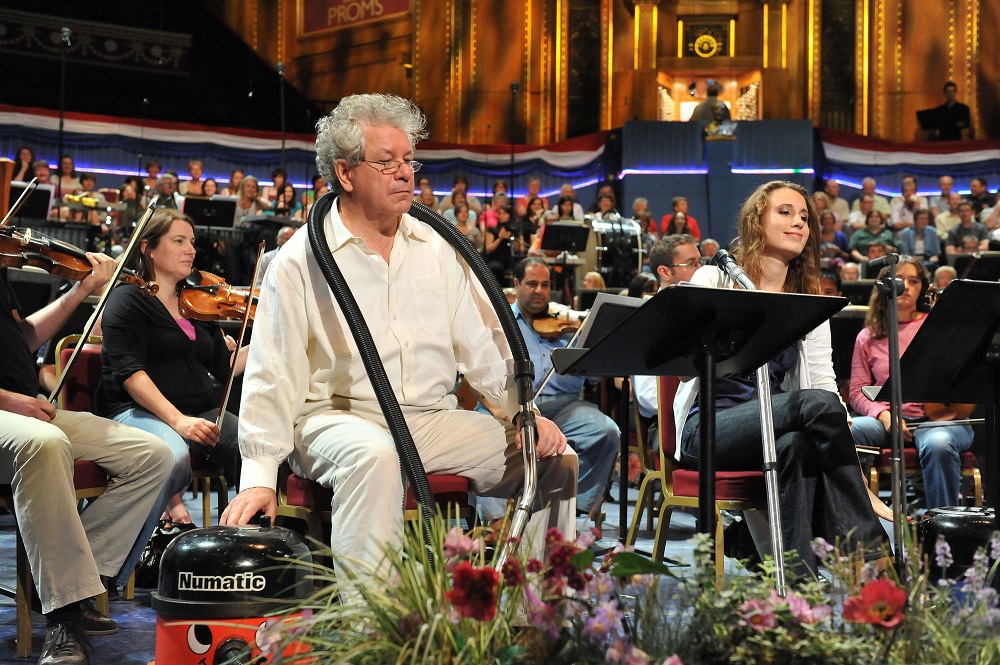
He made a huge personal and musical commitment to us when he became Chief Conductor and we felt that and treasured it. He once threw us a party which he decided should be wig-themed. Someone in the orchestra managed to find about 20 wigs that were a perfect match for his wild grey curly hair. When he arrived at the party himself in a splendid wig, he looked at us all in our Jiří wigs, burst out laughing and said "Simon Rattle!".
JAKUB HRŮŠA, conductor
Jiří Bělohlávek has passed away – a master of musical performance, a sovereign interpreter of Czech music, a tender and sensitive soul, a man who took so much joy in the gentlest details of the works of the wide symphonic and operatic repertoire. His conducting art cannot be replaced, his leadership at the head of the most important Czech and international orchestras, lately of the venerable Czech Philharmonic, especially so. I personally lost a dear friend. No-one will ever again be able to offer me that wonderfully valuable, attentive and utterly cultivated feedback, a critical word, an encouragement in knowledge. However, all of us who knew Jiří closely, as artist and as person, will always carry all that beauty he created as a precious legacy and heritage. At least I personally firmly believe so. I am happy I was close to him for so long. But I am deeply sad that our time together couldn’t have been even longer.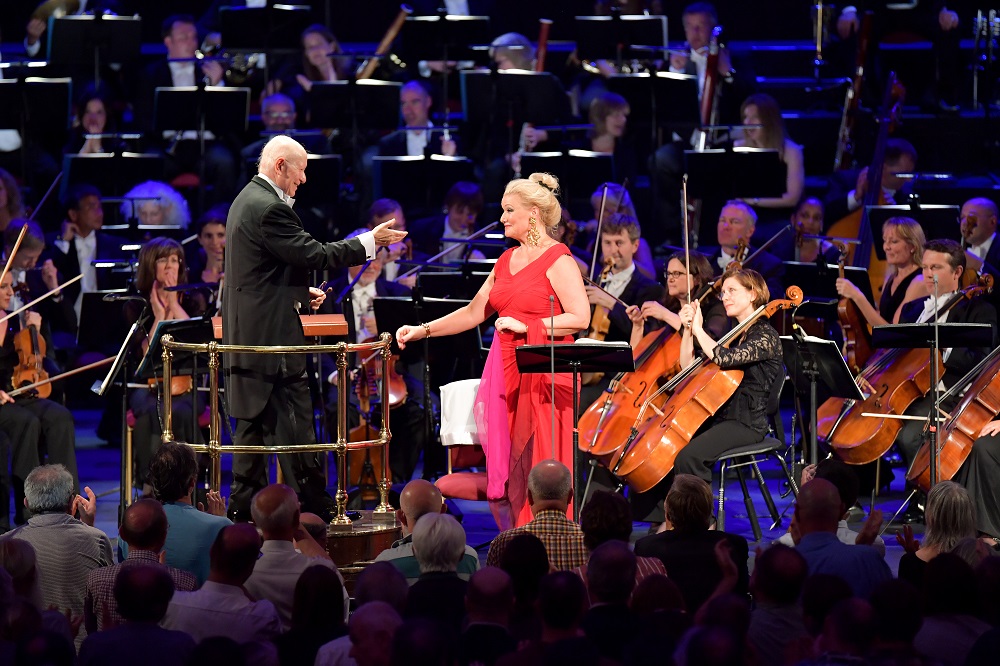
KARITA MATTILA, soprano
By way of tribute Ms Mattila released this e-mail communication to her beloved conductor shortly before his death. Pictured above by Chris Christodoulou, who supplied theartsdesk with images: Bělohlávek, Mattila and the BBC Symphony Orchestra in the Proms performance of Janáček's The Makropulos Affair.
Dear Jiří,
Hope this message finds you well!
Wherever you are, and Anna, you always have a special place in my heart. You have had such an influence in my singing, my artistry over the years that the more time goes by the more I value it, treasure it. Working with you has shaped me and my thinking as a singer, as an artist, and I have learnt so much from you.
Gratitude is the word. You are my hero, dear Jiří, and I am the luckiest of opera singers to have the privilege to have worked with you and hopefully continue to work with you in the future.
All these thoughts and feelings are pouring out of me, my heart, these days, here in Munich. Jenůfa performances running, me as Kostelnička, one more to go (Saturday). God, I love this opera!
And I miss you so.
Yours truly, with all my love,
Karita
Two tributes from members of the PKF - Prague Philharmonia, which Bělohlávek founded in 1993 and which was the last orchestra he conducted, in May in a concert in Martinů's home town of Polička (the concert pictured above, with a photograph of the composer looking on).
HANA KUBISOVÁ, founding member and current violinist of the PKF – Prague Philharmonia
I was shocked when maestro Bělohlávek left us, even though I knew he was gravely ill. I did not want to add my memories to everything which had already appeared in the press and media because I would only have been repeating what someone else had already written.
However, as I was quietly remembering and reading through all of those contributions, I came across a wonderful photo-album by Alexander Goldscheider, which beautifully documented maestro Bělohlávek's whole life from a glowing child, through all the important stages in life to its very peak. I realised that I first met him when he was the same age as most of the founding members of the "little philharmonics", as he soon called it, are now. He was the father of two young daughters and I would say that he also used this fatherly approach with us. He experienced with us a time of maturation – both as musicians and as people – with all of the joys and the pitfalls which this period brought. He knew all about our first major steps and changes in life, whether these were marriages, the birth of children, divorces, mortgages...
Despite all of these circumstances, however, he insisted on a professional approach and moderating our emotions so that our work, which always came first, was not disturbed. I remember with pride the rehearsals when he was searching for the most beautiful tone colour for a particular musical style, the best stroke so that a phrase sounded right and stood out, the ideal tempo, dynamic, harmony. Often we were so exhausted we no longer knew how to do it better, and still it wasn't right. We had ingrained in us the need to be sensitively aware of each other to create a beautiful harmonic whole. I believe that the PKF will continue in that spirit, and I personally consider it to be something quite exceptional.
It is very difficult to summarize 23 years in a few lines. My personal relationship with Jiří Bělohlávek was sometimes difficult and it changed over the years. However, the maestro was always interested in my work and I think that he was glad that I was doing well. It also really surprised me that he made efforts to contact people through social networks such as Facebook, which I would never have expected from someone of his stature.
Maestro Bělohlávek, we will miss you!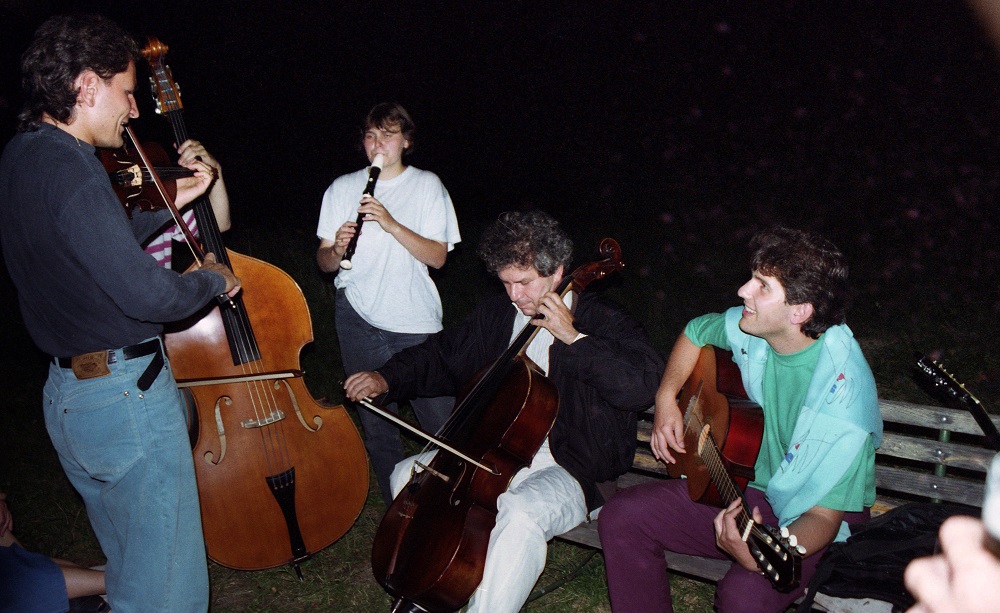
RADIM OTÉPKA, founding member (double bass) and current Director of the PKF - Prague Philharmonia
Jiří Bělohlávek [pictured above as cellist with PKF players in a 'jam' session at Komorní Hrádek in 1994] was the man who created and gave artistic life to the PKF – Prague Philharmonia. He endowed us with his extraordinary diligence, application, and humility not only towards himself but towards others. He directed our artistic and personal lives in such a way that no-one had dreamed of 23 years ago. We are thankful to him for that. He was a father to us, an inexhaustible well of inspiration and a source of artistic and human understanding. Even after he had released his, as he used to like to say, "little philharmonics", into the world, he never forgot to return to us, and the life of the PKF and its members was always of interest to him. He always stood by us and was ready to help.
How significant it is then that his artistic journey should have come to an end with his "little philharmonics" at a concert in Polička, the home of Bohuslav Martinů, whose work he so admired and promoted both in the Czech Republic and abroad.
Professor, please accept my thanks for what you did for us, for Czech culture and for our country.
Explore topics
Share this article
The future of Arts Journalism
You can stop theartsdesk.com closing!
We urgently need financing to survive. Our fundraising drive has thus far raised £49,000 but we need to reach £100,000 or we will be forced to close. Please contribute here: https://gofund.me/c3f6033d
And if you can forward this information to anyone who might assist, we’d be grateful.

Subscribe to theartsdesk.com
Thank you for continuing to read our work on theartsdesk.com. For unlimited access to every article in its entirety, including our archive of more than 15,000 pieces, we're asking for £5 per month or £40 per year. We feel it's a very good deal, and hope you do too.
To take a subscription now simply click here.
And if you're looking for that extra gift for a friend or family member, why not treat them to a theartsdesk.com gift subscription?


Add comment